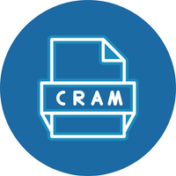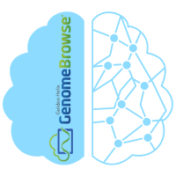Discover the power of VSClinical’s Interpretation Match Behavior options for managing the scope of somatic variants in cancer reporting, enabling clinical teams to make informed treatment decisions. Multiple interpretations can apply to a single biomarker or tumor type. In some circumstances, a clinical team may only want to report the most relevant and significant biomarker, treatment, diagnosis, or prognosis interpretations… Read more »
Unlocking the intricacies of fusion representations is crucial for understanding the impact of complex genetic rearrangements on gene function and disease development. In the most recent release of VarSeq, we added support for the import of complex rearrangements from VCF files, which typically encode rearrangements using breakend notation. This powerful notation is capable of describing the full spectrum of structural… Read more »
A Step-by-Step Guide to Creating a BED File from RefSeq for Accurate Data Analysis Our FAS team has received a flurry of inquiries recently, asking how to run coverage statistics on their projects without a pre-defined BED file. We’re here to help! To analyze sample coverage statistics, you’ll need a BAM or CRAM file that displays the read depth coverage… Read more »
Discover the innovative clinical evidence search of the VSClinical AMP workflow, where patient biomarkers and tumor types are matched to the most relevant data from top sources like CIViC, DrugBank, and Clinical Trials. One of the core features of the VSClinical AMP interpretation workflow is the ability to search third-party data sources to find clinical evidence that matches the patient’s… Read more »
This month we are thrilled once again to highlight two publications in which VarSeq plays an important role in the genetic testing pipeline. The continuing advances in Next Generation Sequencing (NGS) are assisting researchers and clinicians in gaining a deeper understanding of complex human syndromes, often referred to as congenital regulopathies. In this first study, genetic variants were discovered that… Read more »
Our recent webcast, Maximizing the Benefits of Comprehensive Genomic Testing in Cancer Care with Golden Helix CancerKB 2.0, was an opportunity to unveil Golden Helix CancerKB v2.0. Our latest VarSeq release was designed to address the changing landscape of cancer genomics, and in this webcast, we discussed the application of our very own Golden Helix CancerKB in the context of… Read more »
Discover the latest advancements in cancer genomic profiling with the release of VarSeq 2.3.0 We are very excited to announce the release of VarSeq 2.3.0! This release was one of the largest VarSeq releases yet, as it includes a large refactor to the VSClinical AMP cancer module. A primary motivation for the release was focused on the availability and increased… Read more »
Unlocking the Potential of CRAM Files: The New VarSeq 2.3.0 Release for Enhanced Plotting, Coverage Analysis, and CNV Detection The CRAM (Compressed Reference-oriented Alignment Map) file format was conceived in 2011 as a more space-efficient way to store alignment data. It saves space over the previous standard BAM (Binary Alignment Map) by only storing the differences between each read and… Read more »
Happy New Year! I hope that you all were able to enjoy quality time with your loved ones over the holidays. Now that 2022 has come to a close, we would like to take the time to say thank you while looking back on a big year full of new experiences and accomplishments. During the pandemic, we’ve been using the… Read more »
Our FAS team would like to thank everyone who attended our December 2022 webcast, A User’s Perspective: Somatic Variant Analysis in VarSeq 2.3.0. This webcast allowed three members of our FAS team to give their unique insights concerning the improvements to our new VarSeq 2.3.0 release, which will be recapped here. Starting with template creation, our Technical Field Application Scientist,… Read more »
Variant normalization is essentially reducing the representation of a variant to its canonical representation. Variant normalization ensures that the way a variant is represented is parsimonious and left-aligned and can also refer to splitting variants into their allelic primitives. VarSeq normalizes variants by default, but we offer users the option to forego one or more aspects of variant normalization. This… Read more »
The last blog in this series covered streamlining variant analysis for large genetic cohorts, namely case-control studies, on a single-project basis. The reality when dealing with big data is that you often do not handle a high volume project all at once. Therefore, we will follow up on the topic of cohort analysis by discussing Golden Helix’s solution for streamlining… Read more »
Thank you to everyone who joined us for our webcast on the upcoming VarSeq features supporting the full spectrum of genomic variation! Traditionally, NGS cancer testing started with small gene panels that looked at a small set of the most common genes to identify small mutations, such as BRAF V600E. However, there are many classes of mutation that cannot be… Read more »
The Golden Helix team is headed off to Phoenix, AZ for the Association for Molecular Pathology Annual Meeting & Expo (AMP) 2022. We are enthusiastically awaiting a week of genetics discussions with new and familiar faces. If you are attending, please stop by our booth and say hello! We will be exhibiting at booth 1432. Golden Helix President & CEO,… Read more »
The month of VarSeq must be October. This month we saw incredible research and clinical application being utilized with the VarSeq suite. Whole exome sequencing and variant filtering and annotation, CNV calling for oncology research, and pathogenicity classification using the ACMG guidelines. VarSeq was able to be a front-runner this month, showing the full range of capabilities. Germline RB1 Mutation… Read more »
There are many reasons a user may wish to focus in on specific variants as part of variant annotation and filtration workflow. You may be looking for the occurrence of specific SNPs in a cohort or perhaps looking for variants known to be associated with specific forms of cancer. For both of these use cases, VarSeq provides a Match String… Read more »
Large-scale next-generation sequencing studies are becoming increasingly popular clinical and research tools. One enduring challenge for interpretion of these large amounts of data has been predicting the functional impact of genetic variants. Access to efficient computational tools for predicting the functional impact of variants is crucial to prioritizing the most potentially relevant variants in a dataset in a time-efficient manner…. Read more »
Let’s say you are the director of a large lab, which is running tens or hundreds of standard NGS sample analyses per week. You have a number of employees with varying levels of analysis background, and you want to be sure everyone is running the analysis the same way. You are also concerned about updating catalogs that could create differences… Read more »
Genomic data visualization is an extremely powerful means to help users comprehend massive amounts of sequencing data and is valuable for communicating genomic information and findings. Genome browser tools allow users to visualize aligned sequence data in BAM format, map the data to a reference assembly, view annotation tracks, genomic region tracks, export graphics for sharing, and much more. Genome… Read more »
As we look back on May, I wanted to highlight a range of applications that our VarSeq suite is capable of and show the success of our partners. In these publications, our VarSeq suite is utilized for the analysis of whole-exome, clinical variant classification and association, and assisting in an NGS panel for clinical oncology use. VarSeq’s range and capability… Read more »














